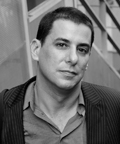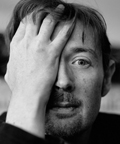Blog Archives
Stories from every angle
So, another Melbourne Writers Festival winds to a close. It’s been that curious mixture of exhausting and energising, with heroes met and made.
Every festival organiser hopes for that magical combination of guests, which can elevate a decent hour’s chat into a wonderful interweaving of minds and ideas. My favourite panels saw this happen, particularly How Russia Changed My Life, featuring the charming Elif Batuman, intrepid memoirist Maria Tumarkin and the irrepressible historian Sheila Fitzpatrick; and From Woolf to Wolf, in which Sophie Cunningham, Monica Dux and Emily Maguire discussed Virginia Woolf, Naomi Wolf and Germaine Greer.
The festival hosted some international stars, including Joss Whedon and Norman Doidge, but often it’s the writers whose work  I’m less familiar with whose stories really affect and delight me. On Sunday, at Magazine, Jake Adelstein, whose book Tokyo Vice tells of how he faced intimidation from the yakuza, read from a deleted chapter of his book – a comic tale of trailing an escaped monkey around Tokyo’s Nishi-Azabu area and being outdone in journalistic prowess by a nine-year-old boy. But only the day before, Adelstein movingly told the packed audience at Feddish about the real and dangerous cost of opposing the yakuza.
I’m less familiar with whose stories really affect and delight me. On Sunday, at Magazine, Jake Adelstein, whose book Tokyo Vice tells of how he faced intimidation from the yakuza, read from a deleted chapter of his book – a comic tale of trailing an escaped monkey around Tokyo’s Nishi-Azabu area and being outdone in journalistic prowess by a nine-year-old boy. But only the day before, Adelstein movingly told the packed audience at Feddish about the real and dangerous cost of opposing the yakuza.
 I loved the new venue, Feddish, where the Morning Fix sessions opened each festival day with a free smorgasbord of authors. But traditional venues continued to shine, including the Toff, which saw DBC Pierre settle back in a giant storytelling chair and artists including Clare Bowditch and Hannie Rayson re-enact Fleetwood Mac’s Rumours.
I loved the new venue, Feddish, where the Morning Fix sessions opened each festival day with a free smorgasbord of authors. But traditional venues continued to shine, including the Toff, which saw DBC Pierre settle back in a giant storytelling chair and artists including Clare Bowditch and Hannie Rayson re-enact Fleetwood Mac’s Rumours.
The parties, of course, were very good. The official opening party set the tone for a fun ten days, with the speeches including a tale of festival love and lust; and the celebration of Overland‘s 200th issue was attended by well-wishers and friends galore. A 25th birthday can never go past without at least a couple of good bashes, and at MWF’s 25th, Readings Books’ Mark Rubbo dropped by, as did Les Murray.
As a participant in the festival this year, too, I experienced many surprising and wonderful moments. During the Schools Program, I spoke with fantastic authors Gabrielle Wang, Kate Forsyth and Alice Pung; and inspiring youth leaders Chris Varney and Adam Smith. It’s so amazing to see how enthusiastic young festival-goers are about reading, books and ideas, and I have no doubt that we’ll see some of them back as guests in the future. During Kill Your Darlings‘ residency at Magazine, it was pretty wild to hear Robyn Archer sing every musical reference in her book Detritus – her live fifteen-minute snippet reel needed to be seen to be believed.
Congratulations to the fantastic festival staff and volunteers for a magnificent 2010 festival. I wish you all a good week’s sleep.
Jake Adelstein’s Tokyo Vice
When it comes to genre, I’m usually more True Blood than true crime. But it’s a wrench to resist Jake Adelstein’s story, as told in his book Tokyo Vice: Jewish-American kid applies for a job at a Japanese newspaper (and not just any newspaper; it’s the Yomiuri Shimbun, which has the highest circulation of any newspaper in the world) and despite his Japanese language score being in the bottom ten, he’s called in for an interview and he gets the job, only to end up sitting opposite a member of the biggest organised crime group in Japan, who is relaying a death threat from his boss. Just another day in the life, really.
Adelstein’s first posting is in half-rural, half-suburban Urawa, a ‘place considered so uncool by urban Japanese that it had spawned its own adjective, dasai, meaning “not hip, boring, unfashionable”’. But, as unfashionable as it is, Urawa is where he cuts his teeth as a police reporter. Navigating the complex spatial politics of the Yomiuri’s office (“Who the hell told you could sit down here!”) and getting up to speed with the house style (“I’ll expect you to know it within a week.”) are small tasks compared to learning how to update the office scrapbooks.
Starting out in any profession is a big ask in any case, but being an American who works for a Japanese newspaper has its own challenges. Adelstein’s first kikikomi (interviews related to a crime) are comedic adventures, with potential interviewees mistaking him for a salesman. The cultural differences serve him well, too, sometimes; “dumb gaijins” can get quite handily behind police tape.
Adelstein is a chummy and deft translator of Japanese culture: from the Japanese reverence for language, as exemplified by the concept of kotodama – the spirit of language that resides in every word; to the underbelly of Japanese culture, which makes our Underbelly look like Play School. Eventually, Adelstein scores a post at the Tokyo Metropolitan Police Press Club, where he begins to cover the extraordinary crime syndicates of Japan – the legendary yakuza.
As Adelstein explained in an interview on WNYC, the yakuza are more Wal-Mart than West Side Story. On one end of the spectrum, there are the members who ‘own’ the illegal immigrants peddling counterfeit wares on the street. On the other end, you have the supremos who launder money through their innumerable – and legitimate – loan businesses and hostess bars.
It would be hard not to admire the seemingly unassailable extent of the various yakuza enterprises, except that, unavoidably, regular people get hurt or disappear. Adelstein’s career path takes a turn when he becomes involved in the story of Lucie Blackman, a British girl who went missing while working as a hostess in Tokyo’s infamous Roppongi district. In this quest, Adelstein straddles the line between impartial observer and passionate truth seeker. And it wasn’t to be the only time he came face to face with the ugly side of Tokyo.
 Jake Adelstein will be a guest of the 2010 Melbourne Writers Festival. He will appear in conversation on September 4 (free event), The Real Life of Crime with Robert Richter QC and Mark Dapin, and Worldwide Crime with Malla Nunn and Louise Welsh, both on September 5.
Jake Adelstein will be a guest of the 2010 Melbourne Writers Festival. He will appear in conversation on September 4 (free event), The Real Life of Crime with Robert Richter QC and Mark Dapin, and Worldwide Crime with Malla Nunn and Louise Welsh, both on September 5.
